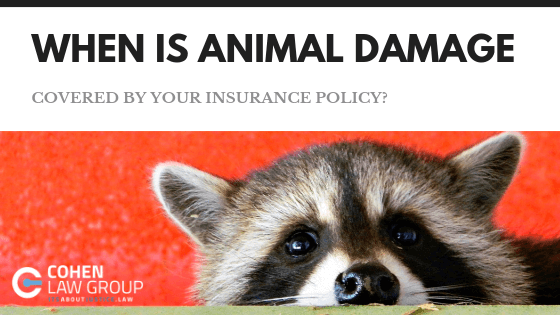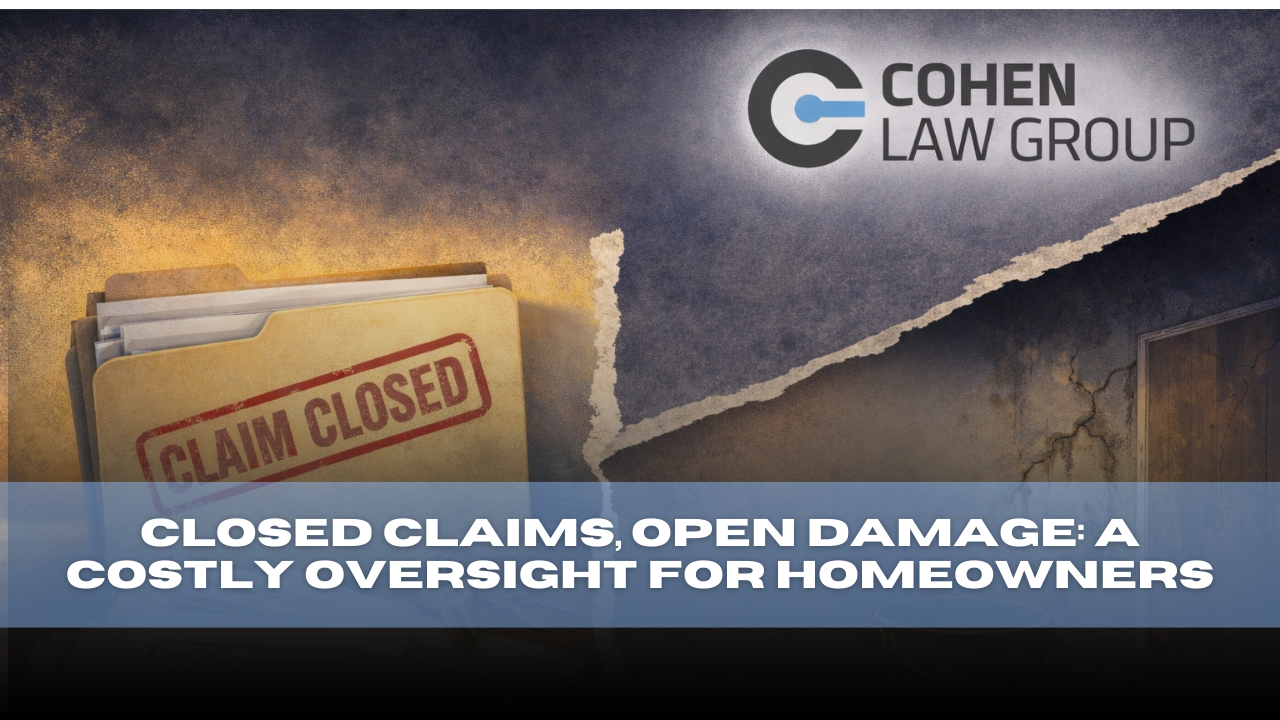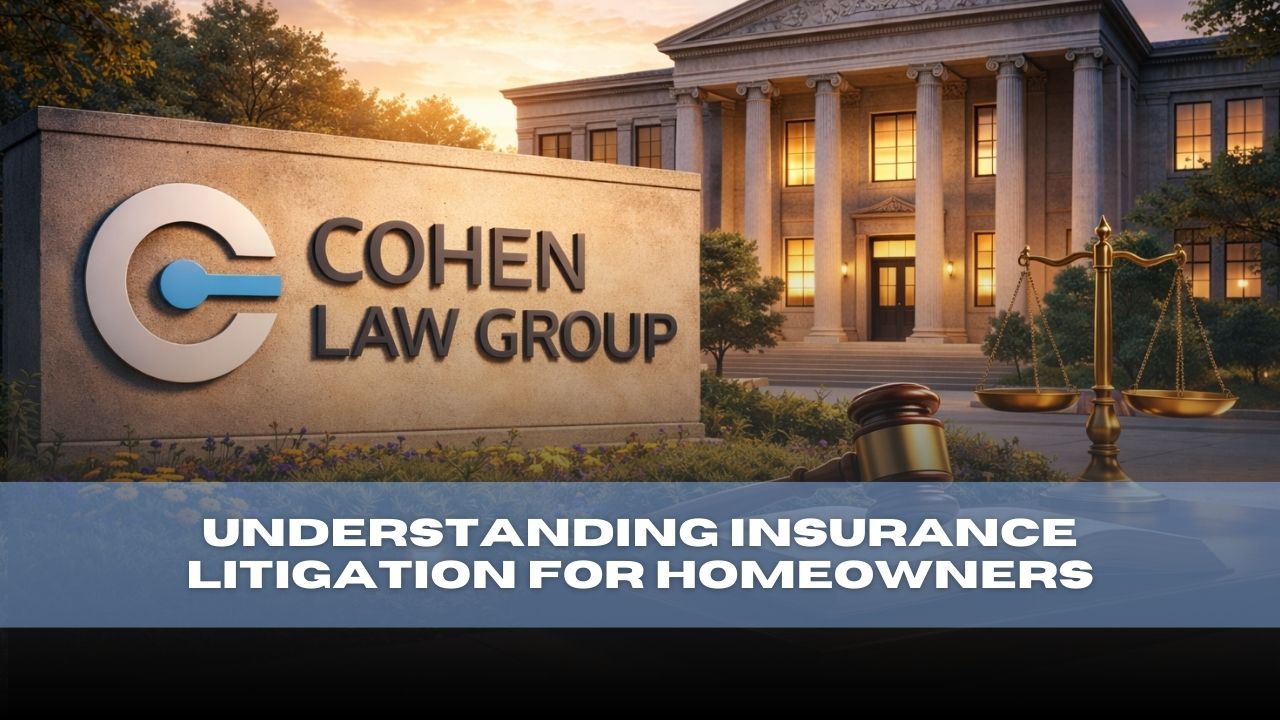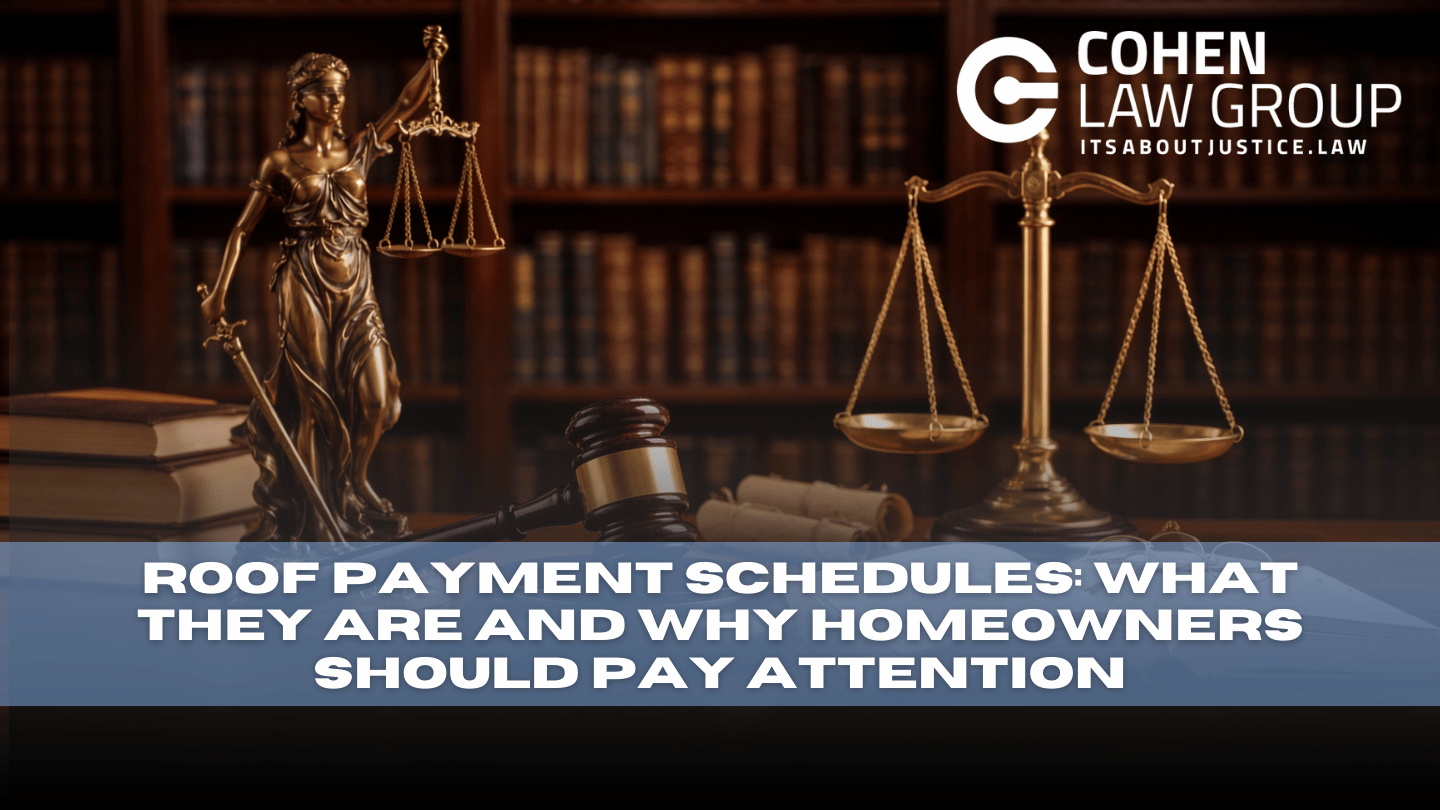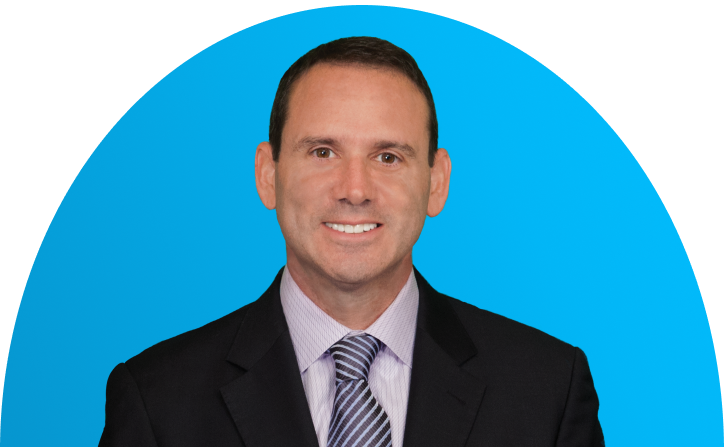When Is Animal Damage Covered By Your Insurance Policy?
By Kevin Vorhis, Esq.
Here’s a fun reptile fact that you can tell your date, your young children, or your very herpetophobic friends: South Florida is the only region in the entire United States where alligators and crocodiles naturally co-exist (although many lawyers may tell you that they have been inside a few courtrooms that may challenge this ecological notion).
Here’s another, substantially less fun fact – a study published in 2016 in the science journal PeerJ reported that approximately 100 unique species inhabit the average American home.
Why, pray tell, is this law blog rattling off uncomfortable facts about reptiles and insects? Because today we are discussing homeowner’s insurance. Still confused? Read on.
Imagine This
You come home after a long day at work. You sit down on your couch. Suddenly you hear a squeak-squeak-squeak and a scratch-scratch-scratch inside the ceiling right above you. Fearing the worst, you call an animal removal service to come out to take a look. They climb into your attic and discover that a raccoon has moved himself into your house like a furry freshman roommate. The raccoon has been there for weeks, and he has made mincemeat of your wiring, insulation and plywood. The animal remover traps the raccoon, cleans up some of the mess in the attic, and then he sends you a bill for the removal and clean up; he also writes you an estimate for the cost to repair the rest of the damage. It may cost thousands.
You call in a claim to your insurance company—after all, that’s what they’re there for. The insurance company sends out an inspector and then they send you a nice little letter saying that they are denying your claim, and they won’t be paying for any of the damage.
How could they deny your claim, and more importantly, what do you do now?
To Answer The Second Question
We recommend that you contact a lawyer that specializes in first-party insurance claims, like Cohen Law Group. We have helped thousands of homeowners recover money on denied insurance claims, including cases involving home damage caused by animals.
If you have a legal question regarding a denial or underpayment of your claim by an insurance company, contact us and we will be able to give you a free legal consultation based on the individual facts of your case.
To Answer The First Question
How can the insurance company seemingly justify denying your claim for animal damage? We must first look in to some of the policy provisions that insurance companies rely on to deny such claims. One common way that insurance companies deny animal claims is by pointing to a policy exclusion for “birds, vermin, rodents, or insects”. These exclusions will typically say something like this:
We do not insure, however, for loss:
…
Caused by:
…
Any of the following:
…
Birds, vermin, rodents or insects; or
Animals owned or kept by an “insured”
A keen eye will notice that in many of these insurance policies, there is no definition to be found describing exactly what a “vermin” or a “rodent” is. Quite a lot of ink has been spilled over the years by courts in Florida regarding these undefined terms. A skilled attorney may be able to help you make the right arguments for why an animal in question is not a “bird, vermin, rodent, or insect” under the meaning of such a policy exclusion.
In the example above, is a raccoon “vermin”? What about a stray cat that was not “owned or kept” by the owner of the house? Is that stray cat considered “vermin”? Does the term “rodent” only apply to mammals of the order Rodentia? Insurance companies keep these terms vague and then they argue that the animal in question is excluded under the insurance policy.
Very often, however, these questions are not as clear-cut as an insurance company may lead you to believe. Homeowners’ attorneys rely on dictionary definitions, scientific journals, and even expert testimony in order to fight against an insurer’s over-inclusive use of these terms to support claim denials for animal damage. We have experience arguing these cases so as to produce a positive result for our clients, often even when the claim is completely denied by the insurance carrier.
Interestingly, we have also encountered situations where the animal in question was never actually trapped or identified. We have seen insurance companies state that the damages caused by an unknown animal were excluded under the policy, even when it cannot be ascertained what animal caused the damage. Depending on the evidence, it can be difficult for anyone to ascertain what animal exactly caused the damage, and in such cases we argue that homeowners should be given the benefit of the doubt, as it is typically an insurance carrier’s obligation in court to argue why a particular policy exclusion applies, not the homeowner’s obligation to demonstrate why it should not apply.
Ultimately these questions are heavily fact-specific, and you will need an experienced lawyer to present these definitional nuances to a judge.
“Pollutants” or “Waste”
Another common policy exclusion that insurance companies rely on are exclusions for “pollutants” or “waste”. Insurance companies argue that the bodily waste created by an intruding animal is a “pollutant” which is excluded by provisions that can be found in some insurance policies. Policies which include these exclusions may have a provision which states as follows:
We do not insure, however, for loss:
…
Caused by:
…
Any of the following:
…
Discharge, dispersal, seepage, migration, release or escape of pollutants, unless the discharge, dispersal, seepage, migration, release or escape itself is caused by a Peril Insured Against under Coverage C of this policy.
Pollutants means any solid, liquid, gaseous, or thermal irritant or contaminant, including smoke vapor, soot, fumes, acids, alkalis, chemicals and waste. Waste includes materials to be recycled, reconditioned or reclaimed.
To most people, a pollutant is a harmful or toxic chemical. Yet once again, insurers rely upon a very broad, vague definition of a “pollutant” to support their basis for a denial. Even the definition in the policy contemplates “fumes, acids, alkalis, chemicals and waste”. This definition is itself curious because, for example, most everything in the world is either somewhat alkaline or somewhat acidic (orange juice for example is mildly acidic; most hand soaps are typically alkaline), so how far exactly does this definition extend? Is an orange juice spill an excluded pollutant?
Similarly, are we to believe that the presence of small quantities of animal droppings inside an attic space truly constitute a pollutant that warrants the denial of an entire, otherwise covered, claim? By that definition, most national parks and nature preserves are heavily “polluted” by animal droppings. As above, we can see that insurance policies often leave us with more questions than answers, and insurance companies regularly rely on this kind of vagueness to deny insurance claims.
Again, it benefits you to have an attorney who can properly argue these definitional issues with your insurance carrier.
Other Issues
Other common bases for denying claims involving animal damage that insurance carriers will argue are: policy exclusions that deal with “wear and tear”, “marring” or “deterioration”; exclusions based on “neglect” or failure to “take reasonable steps to save and preserve property”; or exclusions that deal with “defective or faulty workmanship or construction”.
While the validity of these exclusions must always be evaluated on a case-by-case basis, our experience as homeowners’ attorneys has taught us that many of these purported bases for excluding coverage under a policy do not withstand closer scrutiny, in light of the obvious damage directly and proximately caused by an animal.
In response to the litigation that has arisen regarding these animal issues, certain insurance carriers have begun writing policy exclusions that specifically exclude particular animal species, such as raccoons, rats, or squirrels. Other policy provisions specifically exclude “infestation”, “nesting” or “discharge or release of waste products or secretions…” so you will need to review your policy carefully to see if the damage-causing animal, or type of damage in question is specifically named.
All of this brings us back to the beginning: what happens if your South Florida home is damaged by an alligator or crocodile? Well, depending on who your insurance carrier is, you may unfortunately be out of luck without the proper legal representation. Click the link for more on that: https://www.miamiherald.com/news/state/florida/article232820773.html
Don’t forget, if you need us, we’re here to help. Give us a call today.

Kevin Vorhis, Esq.
DISCLAIMER: This website is for informational purposes only and does not provide legal advice. Please do not act or refrain from acting based on anything you read on this site. Using this site or communicating with Cohen Law Group through this site does not form an attorney/client relationship. This site is legal advertising. Please review the full disclaimer for more information by clicking here.

